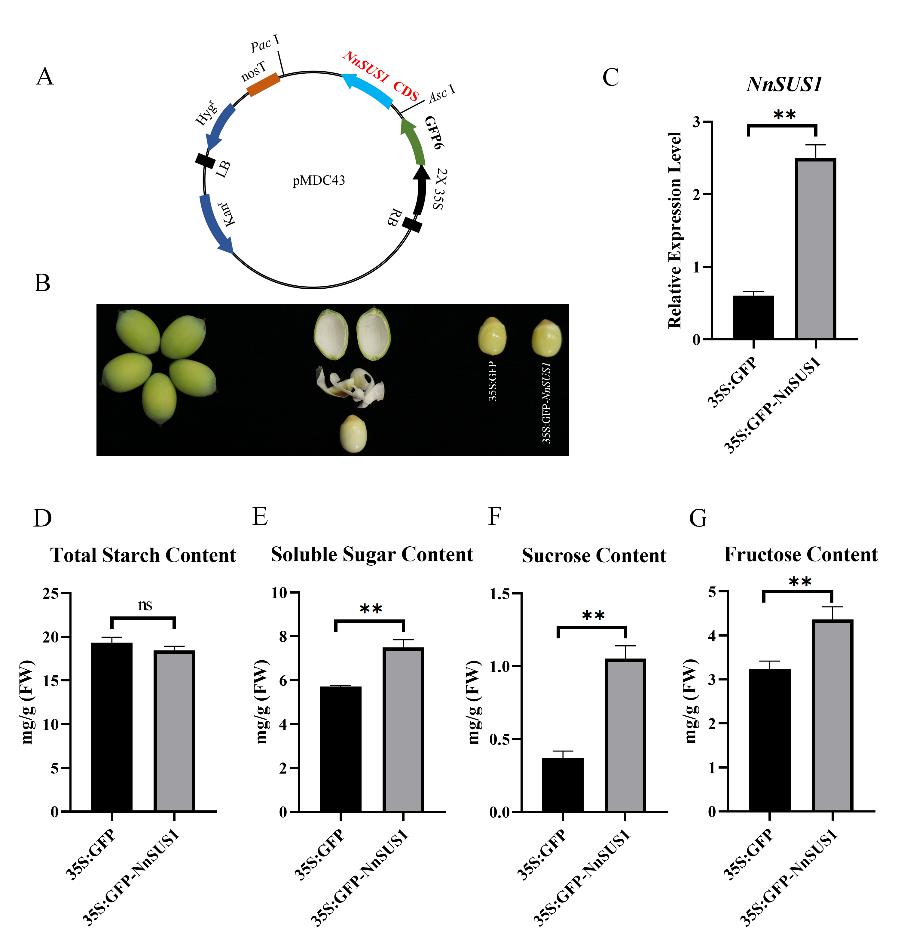Name:YANG Mei
Tell:
Email:yangmei815815@wbgcas.cn
Organization:Wuhan Botanical Garden
Gene NnSUS1 Positively Regulates Sugar Accumulation in Lotus Seeds
2024-05-20
With crisp and sweet taste, fresh lotus seeds are enjoyed as a nutritious fruit during the hot summer months. Sugar content stands out as a key factor influencing the flavor of fresh lotus seeds. Revealing the molecular mechanisms governing sugar accumulation in lotus seeds will advance the quality improvement of seed-lotus variety by molecular breeding methods. However, research on the lotus seeds sugar accumulation remains scarce.
The Lotus Resources and Genetic Improvement Research Group at Wuhan Botanical Garden identified and characterized five sucrose synthase (SUS) homologs in lotus, designated as NnSUS1-NnSUS5, and studied the function of NnSUS1 gene on sugar accumulation.
Results found that NnSUS1, as the predominant SUS gene, exhibited high expression levels in both floral organs and seed cotyledons. Transcriptome analysis of seed cotyledons at 6-24 days after pollination (DAP) revealed co-expressed of NnSUS1 with multiple gene related to starch and sucrose metabolism. To elucidate the function of NnSUS1, a transient overexpression system was established in lotus cotyledons. Overexpression of the NnSUS1 gene in cotyledons resulted in a significant increase in total soluble sugar levels, including sucrose and fructose.
These findings provide valuable theoretical insights for enhancing sugar content in lotus seeds through molecular breeding methods.
The results of this research were published in the journal Plant Physiology and Biochemistry under the title “NnSUS1encodes a sucrose synthase involved in sugar accumulation in lotus seed cotyledons”. SONG Heyun served as the first author, with YANG Mei and SUN Heng as the corresponding authors.
This research received support from the Biological Resources Program, Chinese Academy of Sciences, the Hubei Provincial Seed Industry Quality Development Fund, the Natural Science Foundation of Hubei Province, and the National Natural Science Foundation of China.

Functional study of NnSUS1 in lotus cotyledons (Image by WBG)